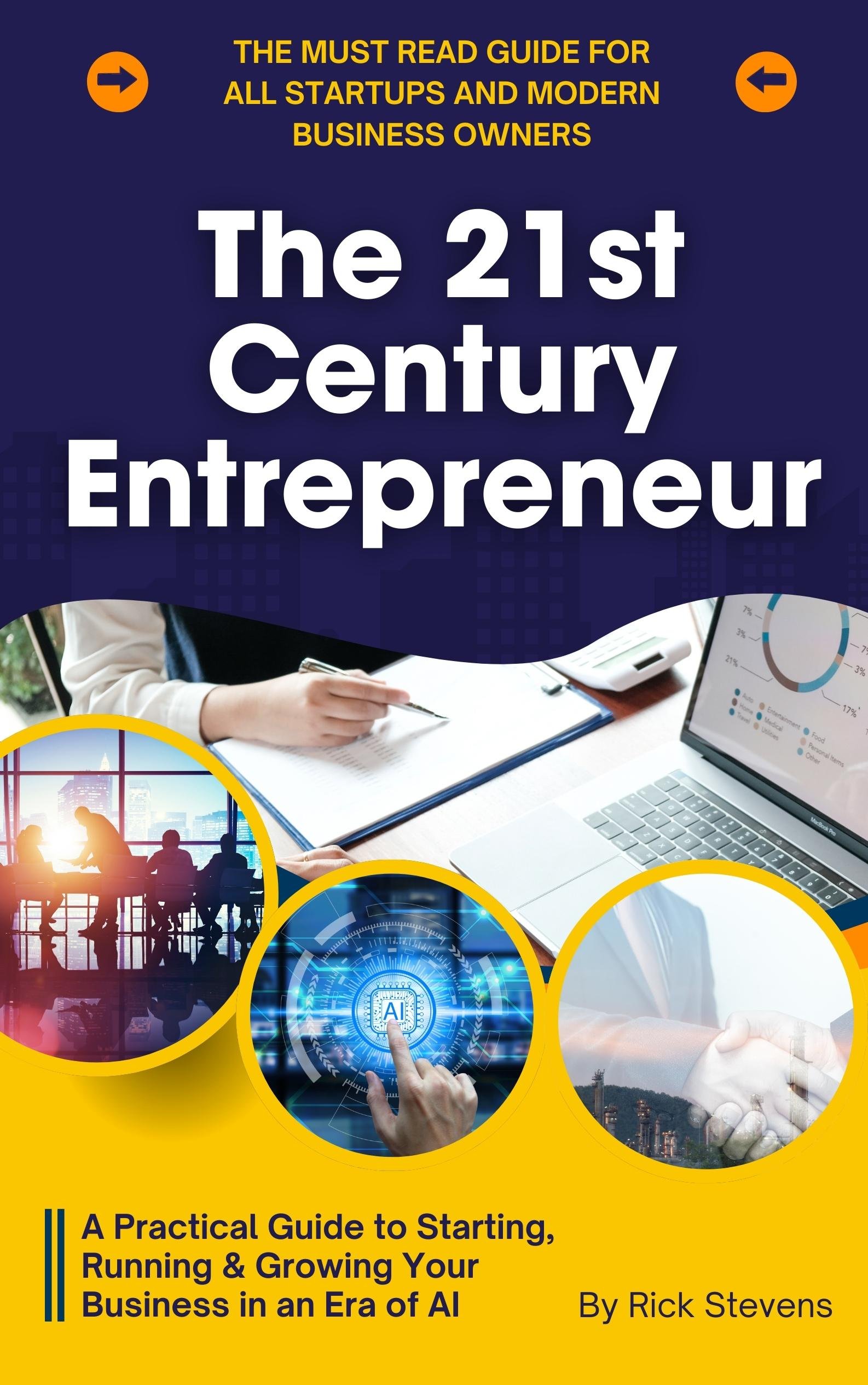Table of Contents
Introduction
As an aspiring CEO, building a strong foundation of knowledge and expertise is essential to your success. And what better way to gain insights and inspiration than through CEO books? In this article, we have curated a list of the top 10 must-read books that every aspiring CEO needs to have on their bookshelf. These books cover a range of topics including leadership, strategy, personal development, and entrepreneurship.
From classics like “The Lean Startup” by Eric Ries, which provides a blueprint for launching successful ventures, to “Thinking, Fast and Slow” by Daniel Kahneman, which delves into the science of decision-making, these books offer valuable perspectives from seasoned leaders and thought-provoking ideas that can shape your approach to business.
Whether you’re looking to gain a deeper understanding of effective leadership strategies, improve your decision-making skills, or stay ahead of the curve in the rapidly changing business landscape, these books are a must-read. So, dust off your bookshelf and make space for these invaluable resources that are sure to propel you towards CEO greatness. Get ready to devour knowledge, gain insights, and fuel your entrepreneurial spirit with these top 10 must-read books.
CEO Books like “Healthy Mind Healthy Profits” by Rick Stevens
“Healthy Mind Healthy Profits” by Rick Stevens is a transformative read that dives deep into the crucial connection between mental well-being and business performance. In today’s high-pressure corporate environment, the mental health of leaders often takes a backseat, yet this book argues that a healthy mindset is not just beneficial but essential for sustained success. Stevens emphasizes that CEOs and aspiring leaders must prioritize their mental wellness to foster an environment conducive to innovative thinking and effective decision-making.
Stevens provides practical strategies for cultivating mental resilience, emphasizing mindfulness, stress management, and emotional intelligence. He illustrates how these elements contribute not only to personal well-being but also to the overall health of the organization. By sharing real-life examples of successful CEOs who have integrated these practices into their leadership styles, the book serves as both a guide and an inspiration. The narrative encourages readers to reflect on their own mental health and consider how it impacts their leadership effectiveness.
Moreover, “Healthy Mind Healthy Profits” challenges the traditional notion that constant busyness equates to productivity. Stevens argues that taking time for self-care, reflection, and mental recharge can lead to clearer thinking and better business outcomes. This shift in perspective is vital for aspiring CEOs who often feel the pressure to work around the clock. By embracing these insights, they can cultivate a leadership approach that values mental health as a cornerstone of corporate success, ultimately leading to healthier profits and a thriving organizational culture.
We may be biased but Healthy Mind Healthy Profits is arguably one of the best CEO books to start with because if you let executive stress and burnout kick in, you are not starting with a recipe for success

“The Lean Startup” by Eric Ries
Eric Ries’ “The Lean Startup” is an example of ground-breaking ceo books that has revolutionized how new businesses approach growth and innovation. The core principle of the Lean Startup methodology is that startups can be managed more effectively by applying scientific principles to their operations. Ries advocates for a systematic, hypothesis-driven approach to product development, which emphasizes rapid experimentation and validated learning. This is particularly crucial for aspiring CEOs who must navigate the uncertainty and risks of launching new ventures.
Ries introduces the concept of the “Minimum Viable Product” (MVP), which encourages entrepreneurs to release a basic version of their product to gauge customer response before investing significant resources. This approach not only saves time and money but also allows for iterative development based on real customer feedback. For CEOs, understanding how to pivot based on data is a vital skill that can lead to more successful product launches and a better alignment with market needs.
The book also discusses the importance of metrics and analytics in assessing business performance. Ries emphasizes that not all metrics are created equal; focusing on actionable metrics that drive growth is essential for making informed decisions. By adopting the Lean Startup principles, aspiring CEOs can foster a culture of agility and innovation within their organizations, ensuring they remain competitive in an ever-evolving marketplace. This book is a must-read in our list of CEO books for those looking to transform their entrepreneurial aspirations into a viable business model.
“Leaders Eat Last” by Simon Sinek
Amongst the next running contenders in best CEO books to buy is “Leaders Eat Last,” by Simon Sinek delves who into the profound impact of leadership on organizational culture and employee satisfaction. Sinek argues that great leaders prioritize the well-being of their team members, creating an environment where individuals feel safe, valued, and motivated. Through compelling anecdotes and research, he illustrates how leaders who “eat last” foster loyalty and trust, leading to higher levels of engagement and productivity. For aspiring CEOs, this book serves as a powerful reminder that effective leadership is not just about authority but about serving others.
Sinek introduces the concept of the “Circle of Safety,” which encompasses the social and psychological protections leaders create for their teams. He emphasizes that when employees feel secure within this circle, they are more likely to take risks, innovate, and collaborate. This approach is particularly relevant in today’s fast-paced business environment, where adaptability and creativity are paramount. By prioritizing the collective well-being of their teams, aspiring CEOs can cultivate a culture that encourages open communication and collaboration.
Additionally, “Leaders Eat Last” challenges the traditional views of success, urging leaders to focus on long-term results rather than short-term gains. Sinek highlights the importance of nurturing a sense of purpose and belonging within an organization, which ultimately leads to sustainable growth. For those on the path to becoming a CEO, this book reinforces the idea that true leadership is defined by the ability to inspire and uplift others, making it an essential read for anyone looking to make a meaningful impact in their organization.
“The CEO Next Door” by Elena L. Botelho and Kim R. Powell
“The CEO Next Door” by Elena L. Botelho and Kim R. Powell provides a research-backed exploration into what makes effective CEOs tick. Drawing from a comprehensive study of over 2,600 leaders, the authors identify key traits and behaviors that distinguish successful CEOs from their peers. This book is particularly enlightening for aspiring CEOs, as it distills complex leadership qualities into actionable insights that can guide personal development and career progression.
One of the book’s core findings is that successful CEOs exhibit a combination of character traits, skills, and experiences. Botelho and Powell emphasize the significance of self-awareness, decisiveness, and the ability to build relationships. They also highlight the importance of resilience and adaptability in navigating the challenges that come with leadership roles. By understanding these attributes, aspiring CEOs can focus on cultivating the necessary skills that will position them for success in their future roles.
Moreover, “The CEO Next Door” dispels many myths surrounding what it takes to become a CEO. For instance, the authors assert that there is no single “right” path to the top; diverse experiences and backgrounds can lead to successful leadership. This message is empowering for aspiring leaders, as it encourages them to embrace their unique journeys and leverage their strengths. Ultimately, this book serves as a roadmap for those who aspire to climb the corporate ladder, offering valuable lessons that can help them navigate the complexities of leadership with confidence.
“The 7 Habits of Highly Effective People” by Stephen R. Covey
Stephen R. Covey’s “The 7 Habits of Highly Effective People” is a timeless classic of CEO books that has inspired countless individuals to achieve personal and professional excellence. Covey presents a holistic approach to effectiveness that encompasses both character and competence. The seven habits outlined in the book provide a framework for aspiring CEOs to develop the mindset and practices necessary to lead with integrity and purpose.
The first three habits focus on personal victory, encouraging individuals to take responsibility for their own lives and actions. Covey emphasizes the importance of being proactive, setting clear goals, and prioritizing tasks based on importance rather than urgency. For aspiring CEOs, mastering these habits is crucial in building a strong foundation for effective leadership. By internalizing these principles, they can foster a sense of accountability and direction that will guide their decision-making and strategic planning.
The next three habits center around public victory, highlighting the significance of interdependence and collaboration. Covey discusses the importance of understanding others, fostering win-win relationships, and embracing synergy within teams. For aspiring leaders, these habits are essential for creating a positive organizational culture that encourages teamwork and collaboration. The final habit, “Sharpen the Saw,” emphasizes the need for continuous growth and self-improvement. Covey’s insights remind aspiring CEOs that effective leadership is a journey, not a destination, and that ongoing personal development is key to achieving long-term success.
“The Hard Thing About Hard Things” by Ben Horowitz
In “The Hard Thing About Hard Things,” Ben Horowitz offers a candid and insightful perspective on the challenges of running a business. Drawing from his own experiences as a CEO, Horowitz shares invaluable lessons learned from navigating the complexities of entrepreneurship. This book is particularly valuable for aspiring CEOs, as it provides practical advice and real-world examples that illuminate the often overlooked difficulties of leadership.
Horowitz emphasizes that there are no easy answers in business; challenges will arise, and leaders must be prepared to face them head-on. He discusses topics such as hiring the right people, managing layoffs, and dealing with the emotional toll of leadership. By sharing his own struggles and triumphs, Horowitz provides a relatable narrative that resonates with aspiring leaders. His honesty about the difficulties of decision-making and the weight of responsibility serves as a reminder that leadership is not always glamorous, but it can be incredibly rewarding.
One of the standout themes in the book is the importance of resilience. Horowitz encourages aspiring CEOs to cultivate a mindset that embraces failure as a learning opportunity rather than a setback. He shares strategies for building a strong company culture and fostering an environment where innovation can thrive. For those looking to take on leadership roles, “The Hard Thing About Hard Things” serves as a crucial resource that equips them with the tools and mindset needed to navigate the inevitable challenges of entrepreneurship.
“The Innovator’s Dilemma” by Clayton M. Christensen
Clayton M. Christensen’s “The Innovator’s Dilemma” is a seminal work that explores the paradox of innovation and disruption in business. Christensen presents the idea that successful companies often fail because they overlook emerging technologies and market shifts. This book is essential for aspiring CEOs who must understand the dynamics of innovation and how to navigate competitive landscapes. One of our top picks for CEO books to get your hands on.
Christensen introduces the concept of “disruptive innovation,” which describes how smaller companies with fewer resources can successfully challenge established businesses. He illustrates how even the most well-managed companies can fall victim to their own success if they become complacent and ignore the potential of disruptive technologies. For aspiring leaders, this insight is critical; it underscores the importance of remaining vigilant and adaptable in the face of change.
The book also offers practical frameworks for decision-making, helping leaders identify which innovations to pursue and how to allocate resources effectively. Christensen emphasizes the need for organizations to foster a culture of innovation, encouraging experimentation and risk-taking. By integrating these principles into their leadership approach, aspiring CEOs can position themselves and their organizations for long-term success in an ever-evolving marketplace. “The Innovator’s Dilemma” is a must-read for anyone seeking to understand the complexities of innovation and its impact on business strategy.
“Thinking, Fast and Slow” by Daniel Kahneman
Daniel Kahneman’s “Thinking, Fast and Slow” delves into the intricacies of human thought processes and decision-making. As a Nobel laureate, Kahneman shares insights from decades of psychological research, exploring the dual systems of thinking that govern our choices. This book is particularly relevant for aspiring CEOs, as it offers a deeper understanding of how cognitive biases and heuristics can influence decision-making in business contexts.
Kahneman introduces the concepts of “System 1” and “System 2” thinking. System 1 is fast, intuitive, and often emotional, while System 2 is slower, more deliberate, and relies on logical reasoning. Understanding these systems is crucial for leaders, as it highlights the importance of recognizing when to trust gut feelings and when to engage in more analytical thinking. For aspiring CEOs, mastering this balance can enhance their decision-making capabilities, enabling them to navigate complex business challenges effectively.
Furthermore, Kahneman addresses common cognitive biases that can lead to poor decision-making, such as overconfidence and loss aversion. By becoming aware of these biases, aspiring leaders can cultivate a more objective perspective, leading to better outcomes in their strategic planning and problem-solving efforts. “Thinking, Fast and Slow” is an essential read for anyone looking to enhance their decision-making skills and understand the psychological factors that influence leadership and organizational success.
“Drive” by Daniel H. Pink
In “Drive,” Daniel H. Pink explores the science of motivation and what truly drives human behavior. Pink argues that traditional incentives, such as monetary rewards, are often insufficient for fostering lasting motivation and engagement. Instead, he identifies three key elements—autonomy, mastery, and purpose—that are essential for motivating individuals in the workplace. This book is invaluable for aspiring CEOs who seek to create a motivated and high-performing team.
Pink emphasizes the importance of autonomy, highlighting that individuals are more engaged when they have the freedom to make choices about their work. For aspiring leaders, fostering a culture of autonomy can lead to increased creativity and innovation within their teams. Mastery, the desire to improve and excel at tasks, is another critical component. Pink discusses how organizations can support skill development and create environments where individuals can pursue mastery in their roles.
The final element, purpose, speaks to the intrinsic motivation that comes from working towards a meaningful goal. Pink argues that organizations that clearly communicate their purpose can inspire employees to connect with their work on a deeper level. For aspiring CEOs, understanding and leveraging these motivational factors is essential for building a cohesive and driven team. “Drive” provides practical insights and strategies for creating an environment where individuals feel motivated, engaged, and empowered to contribute to the organization’s success.
The 21st Century Entrepreneur
Another Rick Stevens publication, “The 21st Century Entrepreneur” is aimed at those starting out in business or indeed those already running one and perhaps looking to expand.
The core message in this book is about the influence and importance of AI and the role it is already playing in our lives, not just tomorrow but right now. For any business the importance of evaluating how AI can enhance their organisation, optimise costs, increase productivity and compete in the modern business world makes this one of the CEO books that should be another vital addition to any bookshelf and you can find out more right here.
Conclusion: The power of reading CEO books for personal and professional growth
In conclusion, the journey to becoming a successful CEO is multifaceted, requiring a blend of knowledge, skills, and personal development. The ten must-read books outlined in this article offer invaluable insights and frameworks that aspiring leaders can leverage as they navigate their paths to leadership. From understanding the importance of mental well-being in “Healthy Mind Healthy Profits” to mastering the intricacies of decision-making in “Thinking, Fast and Slow,” these resources provide a comprehensive foundation for growth.
Reading not only enhances knowledge but also fosters critical thinking and self-reflection. As aspiring CEOs immerse themselves in these texts, they gain access to the experiences and wisdom of seasoned leaders, enriching their own perspectives on leadership and management. The lessons learned from these CEO books can empower them to make informed decisions, develop effective strategies, and cultivate a positive organizational culture.
Ultimately, the power of reading lies in its ability to inspire change and drive personal and professional growth. By committing to a lifelong journey of learning, aspiring CEOs can equip themselves with the tools and insights necessary to lead with confidence and purpose. As they build their libraries and delve into these transformative texts, they take meaningful steps toward realizing their ambitions and achieving success in their leadership endeavours.






